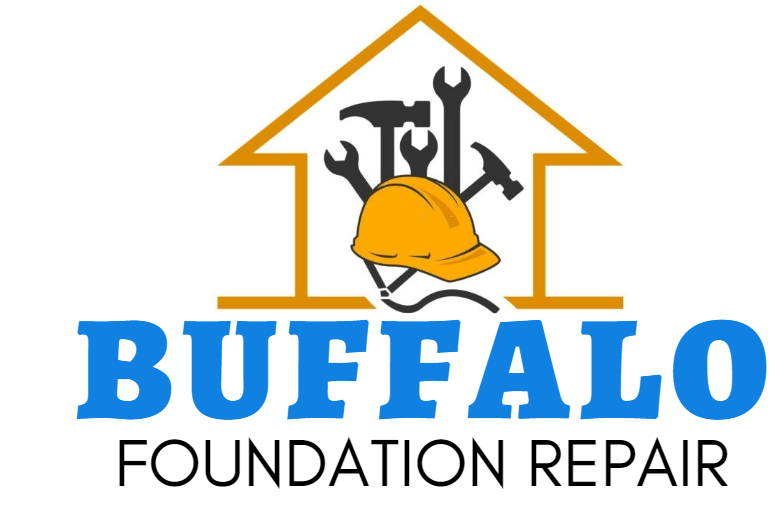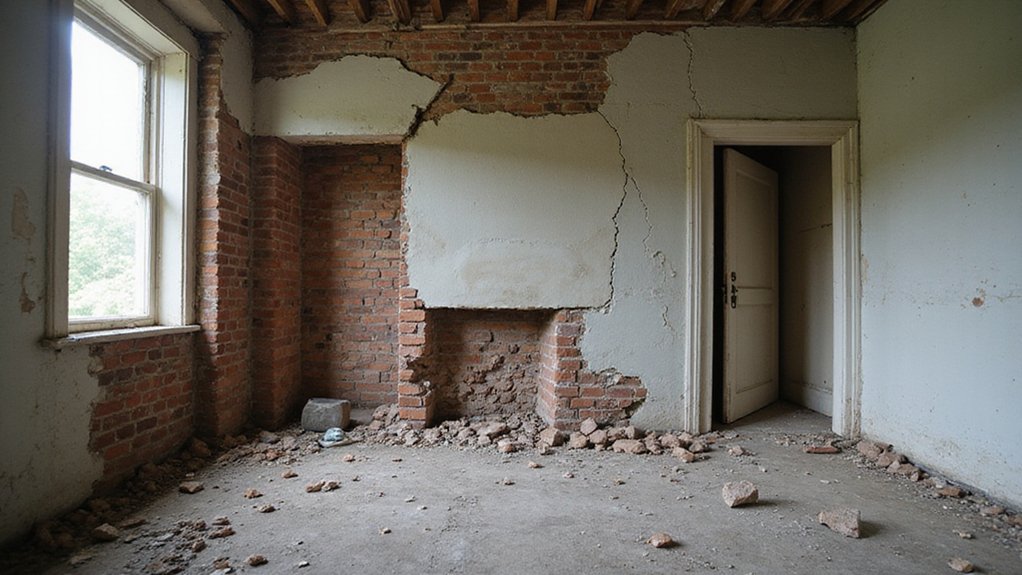Your home’s foundation is its most vital structural component, and signs of trouble shouldn’t be disregarded. Cracks, uneven floors, and sticking doors could indicate underlying foundation issues that require professional attention. While these problems may seem insignificant, they can signify more substantial concerns that, if left unresolved, can lead to expensive repairs and compromise your home’s stability. Understanding the common warning signs can help you take proactive steps to protect your investment and safeguard your family’s well-being.
Cracks in Walls and Floors
If you notice cracks forming in your walls or floors, it’s important not to ignore them. Cracks can be a sign of foundation issues, such as shifting or settling soil. Water leaking through walls or floors can lead to serious problems in the house. Sagging floors and exterior wall cracks are also potential indicators of foundation problems. These cracks may seem minor at first, but they can worsen over time and lead to more serious structural damage.
It’s best to have a professional foundation repair specialist inspect the cracks and determine the underlying cause. Addressing foundation issues promptly can help prevent further complications and costly repairs down the line.
Uneven or Sloping Floors
Another common sign of foundation problems is uneven or sloping floors. You may notice your floors feeling “off” or seeing gaps between the floors and baseboards. This can happen when the foundation begins to sink or shift, causing the floors above to become uneven. Regularly checking for cracking, leaning, and settling can help identify foundation issues early.
Sticking Doors and Windows
Sticking doors and windows are another telltale sign that your home’s foundation may be in trouble. As the foundation shifts, the frames that support your doors and windows can become misaligned, causing them to stick or not close properly.
This is often accompanied by:
- Sagging door and window frames
- Cracks around the frames
- Improper ventilation leading to drafts
These issues can be frustrating, but they’re also an important warning sign that your home’s foundation needs attention. Addressing these problems promptly can help prevent further damage and maintain the safety and comfort of your living space.
Gaps Around Baseboards and Trim
When you notice gaps around your baseboards and trim, it can be a worrying sign that your home’s foundation is shifting. These gaps often indicate that the floors are sagging, which can lead to moisture intrusion and further damage.
As the foundation settles or moves, it can cause the walls and floors to shift, creating these unsightly gaps. While it may be tempting to try to fill the gaps, that’s only a temporary solution. Addressing the underlying foundation issues is vital to prevent more severe problems down the line, like structural instability or even safety concerns.
Tilting or Sinking Chimney
If you’ve noticed that your home’s chimney is tilting or sinking, it’s a clear sign that there may be issues with your home’s foundation. This type of structural damage can indicate several underlying problems, including:
- Soil settlement or expansive soil conditions that cause the foundation to shift
- Cracks or damage to the foundation itself
- Leaning walls or other signs of foundation movement
It’s important to address a tilting or sinking chimney promptly, as it can lead to further foundation damage and even safety hazards. Consult a professional foundation repair contractor to assess the extent of the issue and recommend the best course of action.
Basement Leaks and Moisture Issues
One common sign of foundation problems is the presence of basement leaks or excessive moisture.
If you notice wet insulation, musty odors, or standing water in your basement, these could be indicators of a deeper issue with your home’s foundation. Excess moisture in the basement can lead to mold growth, wood rot, and other structural damage over time.
It’s important to address these problems promptly to prevent further deterioration and potentially costly repairs. Don’t ignore these warning signs – take action to identify and resolve the source of the moisture intrusion in your basement.
Foundation Settlement and Subsidence
Foundation settlement and subsidence are other common signs of foundation problems. These issues can arise from a variety of factors, including:
- Soil erosion, which can cause the ground to shift and the foundation to sink
- Poor drainage around the home, leading to water buildup and foundation damage
- Weak or unstable soil conditions that can’t properly support the weight of the structure
If you notice cracks in your walls, floors, or ceilings, doors and windows that no longer open and close properly, or uneven floors, these may indicate foundation settlement or subsidence. Addressing these problems promptly is vital to preventing further damage.
Frequently Asked Questions
How Do I Know if My Foundation Needs to Be Repaired?
Your foundation may need repair if you notice settling issues or soil erosion around your home. These problems could indicate a deeper issue with your home’s structural integrity that requires prompt attention.
What Are the Common Causes of Foundation Problems?
Soil erosion and improper drainage are common culprits behind foundation problems. They can cause the ground to shift, leading to cracks and uneven settling that threaten your home’s structural integrity.
How Much Does Foundation Repair Typically Cost?
The average foundation repair cost typically ranges from $3,000 to $15,000. The estimated repair timeline can take anywhere from a few days to a few weeks, depending on the extent of the damage.
How Long Does a Foundation Repair Project Take?
The repair process typically takes 3-6 weeks, depending on the project’s scope. The timeline can vary, so it’s best to consult a professional to understand the specifics of your foundation repair project.
Can I Do Foundation Repairs Myself or Do I Need a Professional?
You can DIY some foundation repairs, but it’s often best to hire a licensed contractor. They have the skills and tools to properly assess and fix your foundation, ensuring it’s done right and your home stays secure.


Recent Comments